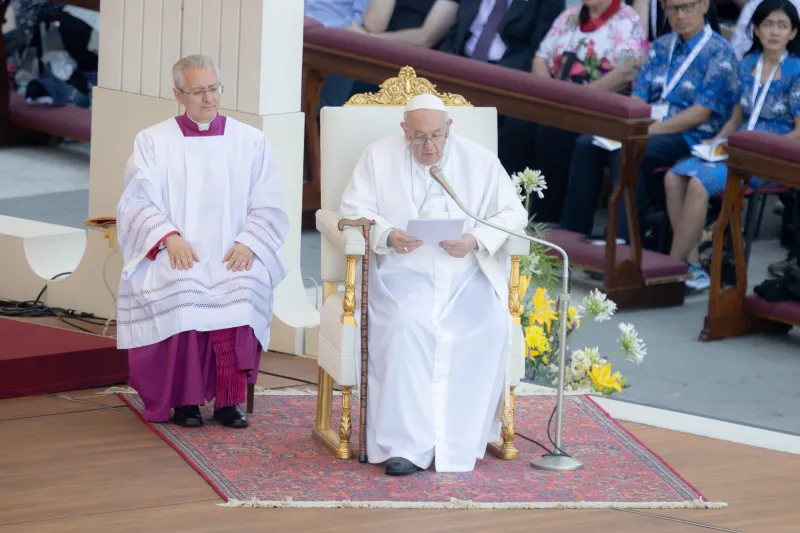
Vatican City, Jun 25, 2022 / 13:00 pm (CNA).
Pope Francis on Saturday delivered a message to families after a Mass in St. Peter’s Square for the World Meeting of Families 2022.
A copy of the message, a “Missionary Sending of Families,” will also be handed out to people in St. Peter’s Square during the pope’s Angelus address on Sunday.
The 10th World Meeting of Families is taking place in Rome from June 22-26. The gathering was attended by around 2,000 families from around the world.
Missionary Sending of Families
Dear families,
I invite you to continue your journey by listening to the Father who calls you: become missionaries in the ways of the world! Do not walk alone! You, young families, be guided by those who know the way, you who are further along, be companions on the journey for others. You who are lost because of difficulties, do not be overcome by sadness, trust the Love God has placed in you, plead daily with the Spirit to revive it.
Announce with joy the beauty of being family! Announce to children and young people the grace of Christian marriage. Give hope to those who have none. Act as if everything depends on you, knowing that everything must be entrusted to God. Be you who “sew” the fabric of society and of a synodal Church, creating relationships, multiplying love and life. Be a sign of the living Christ, do not be afraid of what the Lord asks of you, nor be generous with Him. Open yourselves to Christ, listen to Him in the silence of prayer. Accompany those who are most fragile, take charge of those who are alone, refugees, abandoned.
Be the seed of a more fraternal world! Be families with big hearts! Be the welcoming face of the Church! And please pray, always pray!
May Mary, our Mother, come to your aid when there is no more wine, be a companion in the time of silence and trial, help you to walk together with her Risen Son.
Franciscus
If you value the news and views Catholic World Report provides, please consider donating to support our efforts. Your contribution will help us continue to make CWR available to all readers worldwide for free, without a subscription. Thank you for your generosity!
Click here for more information on donating to CWR. Click here to sign up for our newsletter.





A family that prays together stays together – is an age old mantra.